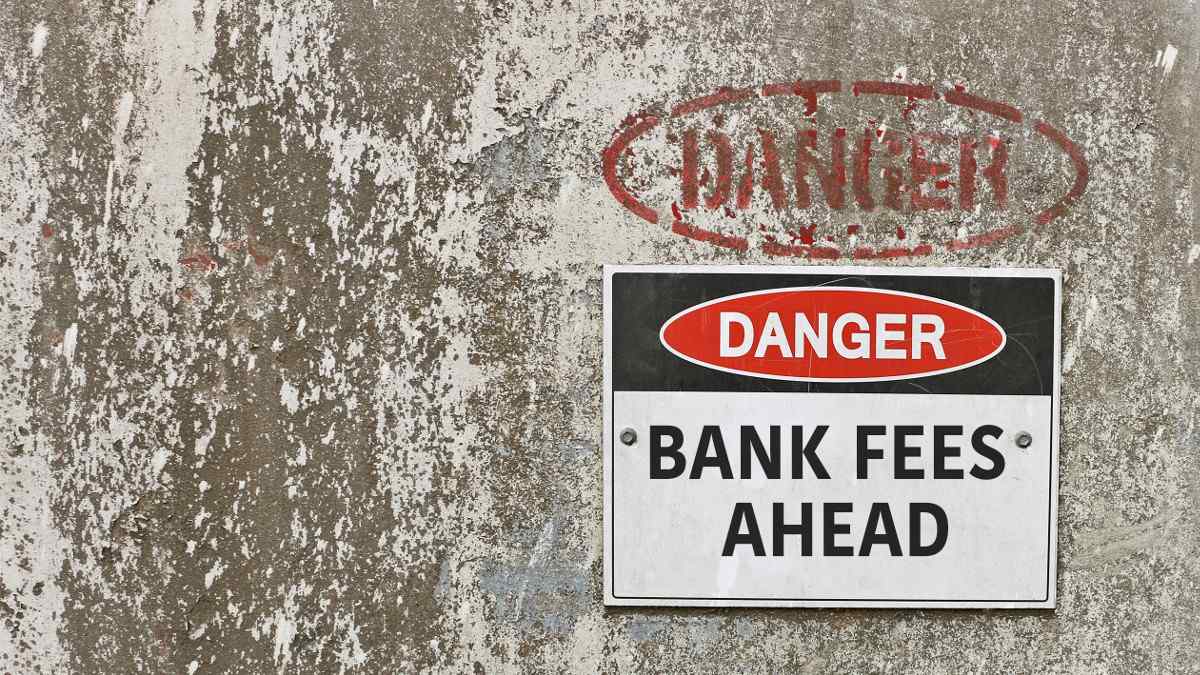How to Avoid Typical Bank Fees
Consumers don’t always realize how expensive it can be to maintain a simple checking account. Learn about the most common banking fees and get tips to avoid them below.
Your bank makes a fortune off your money. They don’t just keep it in a vault and let it get dusty. They invest your cash when you’re not using it, and unless your money is in a high-yield savings account, chances are you won’t see a cent of what they make off you. What makes it worse is some banks also charge you for holding onto your money. Why do banks charge fees? The reason they exist is that people keep paying them. It isn’t fair when you consider that they are making money off your money, but the hard truth is that bank fees are very common.
What are Bank Service Fees?
Banks are businesses, and as such they look for any opportunity to make money. Let’s look at three examples of bank fees:
- Checking account fees – most commercial banks charge a monthly fee to maintain a checking account. The fee can be anywhere from $2 to $20 per month.
- Overdraft charge – there’s only so much money in a checking account, and when a check or charge goes over what’s there, then the bank will charge an overdraft fee to temporarily cover the difference. When people ask what is the highest bank fee, this is usually the answer. The fee is at least $30 for each overdraft, which can quickly add up as some banks will process this charge up to five times per day. Some banks also charge sustained or extended overdraft fees on top of the initial fee. Similarly, you can also receive a “returned deposit charge” for insufficient funds. One way to avoid multiple non-sufficient funds (NSF) charges is to take out a payday loan or a cash advance to address unexpected charges.
- Minimum balance charge – banks will punish low-earners by charging them for not having enough in their bank account. There is a similar fee for not using the account at all. It is known as an “inactivity fee.”
While not always considered a bank fee, ATM surcharges are when a customer uses an ATM not associated with their bank and have to pay a fee to their bank, as well as a fee to whoever is running the ATM.
Fortunately, we have tips to avoid fees at Bank of America and other major companies known for making these charges.
How to Avoid Bank Fees

How much are bank fees? It depends on the charge, but one thing is certain – it’s best to avoid them whenever you can. Here are some easy tricks for sidestepping bank charges:
- It never hurts to ask your bank if they can stop charging you. For instance, some banks will waive your checking account fee if you ask them. If they won’t, then it might be a good time to switch banks. You may enjoy a sign-up bonus, plus you can save with no monthly fee.
- The best way to never pay an NSF is by not overdrawing your account. Another is to sign up for an account where overdrafts are not possible. These usually cost more, so be ready to pay one fee to avoid another.
- Before you travel internationally, make sure you have a credit card that doesn’t charge a foreign transaction fee. Otherwise, you could end up paying around three percent extra on every charge. (Before you sign up for a no foreign transaction fee credit card, make sure it doesn’t have an annual fee.)
Nobody ever said you had to keep your money in a traditional bank. There are other places that will accept your direct deposits, like online savings accounts. They aren’t always as easy to draw from, but these kinds of accounts usually offer higher yields, meaning you end up with more money in the long run.
Using a Cashback Card Instead of a Checking Account
Another tactic that helps you avoid bank service fees while also making extra cash is using a cashback credit card. Here are the steps you need to follow:
- First, get rid of your checking account. You won’t need one anymore.
- Then, change it so your direct deposit goes into your savings account. Make sure your savings balance always stays above the threshold for a minimum balance charge.
- Now, what do you do when you want to spend your money? You use a cash rewards credit card! You’ll be earning money every time you swipe. Just be sure to pay off your total monthly balance each billing cycle to avoid paying interest on the card.
This is a trick that lots of people use to cash in on credit card rewards without having to pay interest. You may get some funny looks at the gas station when you buy that 80-cent soda with a credit card, but you can rest assured knowing that you’re earning cashback on every swipe. Plus, you’ll be avoiding those bank service fees.
How Much are Bank Fees?
According to the FDIC, banks collected over $11 billion in overdraft fees in 2017. One tactic that banks use to get as much out of this penalty as possible is to process debit transactions starting with the highest charges first.
Here’s how this abusive tactic works:
- A consumer has $1,000 in their checking account.
- They make six debit payments throughout the day.
- One of the debit payments is $1,000 for rent.
- The sum of the next five charges is $30
- The bank processes the rent payment first and then charges a $30 NSF fee for each of the other charges, totaling $150 in fees.
The consumer would have been much better off if the bank had processed the smaller charges initially. In that case, they would have only had to pay the overdraft penalty one time, saving them $120 and putting them in a better position to pay back what they owe.
Even after you’re fed up with your bank and leave, they may charge you one last time on your way out in the form of an account closing fee. This usually only happens if you’ve had the account for a short period. Some experts suggest waiting six months before closing a bad account to avoid this fee, but you should do some math before you follow that advice and figure out which way will save you more in the long run. You may save money by paying the account closing fee and avoiding the cost of keeping the account for six months.
Use a Credit Union Instead
We’re not saying that credit unions never charge fees. They do. But a lot of the time the benefits outweigh the disadvantages when working with a credit union. The benefits can include having an easier time getting a loan, receiving a higher yield on your savings account, and being treated more like a human rather than one of the company’s millions of customers.
You may have a harder time finding an ATM in your network, but that’s a small price to pay to avoid the rest of the charges outlined in this article. If you do decide to stick with your bank, we hope these tips will help you avoid some of the service fees you may be paying for right now.





